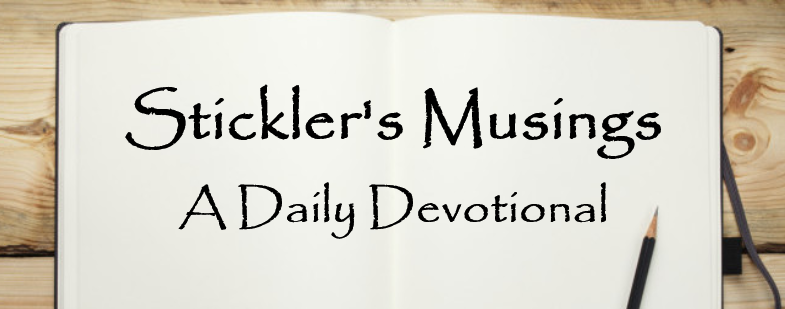Suggested Reading: 1 Samuel 14:13-30 or 1 Samuel 14 (the whole story)
In Star Trek: First Contact, Captain Picard comes face to face with the Borg, the enemy who had enslaved him, taken control of his body and subjugated his mind, bending it to their control. At one point, the rest of his command crew recommend abandoning the Enterprise and setting the self-destruct, both because the ship has been infested by the Borg and because destroying the ship will eliminate the current Borg threat to Earth. Picard gives a fiery speech about drawing a line and refusing to allow the Borg to go any further. Picard advocates taking the fight to the Borg and refusing to allow the ship to be destroyed. Only after a relative stranger intervenes does Picard realize that he isn't focused on defeating the Borg or keeping them from harming Earth but on hurting them, on taking revenge for the hurt they caused him. Upon making this realization, Picard grudgingly abandons his quest for revenge and finally decides to do what is best for his crew.
In Star Trek: First Contact, Captain Picard comes face to face with the Borg, the enemy who had enslaved him, taken control of his body and subjugated his mind, bending it to their control. At one point, the rest of his command crew recommend abandoning the Enterprise and setting the self-destruct, both because the ship has been infested by the Borg and because destroying the ship will eliminate the current Borg threat to Earth. Picard gives a fiery speech about drawing a line and refusing to allow the Borg to go any further. Picard advocates taking the fight to the Borg and refusing to allow the ship to be destroyed. Only after a relative stranger intervenes does Picard realize that he isn't focused on defeating the Borg or keeping them from harming Earth but on hurting them, on taking revenge for the hurt they caused him. Upon making this realization, Picard grudgingly abandons his quest for revenge and finally decides to do what is best for his crew.
There is a similar revenge-motivated story in 1 Samuel where the main character doesn't learn his lesson. Saul has led the Israelites into battle against the Philistines. Saul is so intent on destroying the Philistines that he 'bound the people under an oath, saying, “Cursed be any man who eats food before evening comes, before I have avenged myself on my enemies!” So none of the troops tasted food' (1 Samuel 14:24, NIV). Saul's son, Jonathan, unaware of the oath his father has placed on the people takes a small taste of honey after going on his own covert mission in which he routed the Philistines in their own camp. Saul finds out about Jonathan's taste of honey when God refuses to answer whether or not they should pursue the Philistines and finish the slaughter. Even upon discovering that the offender is his own son, Saul insists on carrying out the curse and killing Jonathan. Only the intervention of the people saves Jonathan from his father's oath.
As you read the story, you discover that Jonathan (even though he agreed to let his father kill him) thought that Saul's oath was reckless and that it prevented the soldiers from being at their best, and Jonathan was right. Saul didn't place the people under that oath because it would help them defeat their enemies but because he hoped it would motivate them to slaughter the Philistines faster. Why? Read Saul's words again, “Cursed be any man who eats food before evening comes, before I have avenged myself on my enemies!” Saul was only concerned about having revenge on his enemies, not the oppressors of his people, not the people who had enslaved his fellow Israelites, not even the people who had mocked God. Saul put the people into a harmful situation because he thought it served his own selfish purposes. Saul was focused only on himself and revenge against his enemies and cared nothing for his people.
How often do we do the same thing? As leaders, teachers, supervisors, employers, parents? How often do we put the people for whom we are responsible in impossible situations to fit our own selfish desires? How often are we so focused on what we want that we destroy any chance at healthy relationships because the people around us can tell that we are making rash, selfish decisions?
The irony is, as in both cases above, if the leaders had focused as much on what was good for their people as their own desires, they would have gotten what they wanted. Picard would have defeated the Borg faster. Saul's people would have had enough strength to pursue the Philistines and they wouldn't have been held up, waiting on God to answer just because Saul had instituted a foolish vow that now had to be kept.
Ultimately, focusing on ourselves and what we want to the detriment of everything else leaves us in a position where the people who depend on us get hurt and we rarely get what we want. If you are responsible for someone, or even if you only exert a small amount of influence, take care of your people, do what is right for them. It will go better for you as well.
